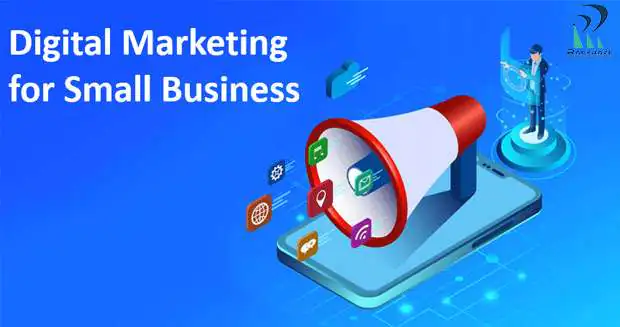In today’s competitive real estate market, branding and marketing are essential for companies to reach and engage their target audience. Each effective form of digital marketing can enhance interactions, generate qualified leads, and ultimately boost sales. Below, you’ll find an overview of the most effective digital marketing strategies in Chennai for real estate agents and businesses, along with ideas to enhance your brand’s visibility, improve your online presence, and boost your ROI. These approaches will be highly beneficial whether you’re working with a digital marketing agency in Chennai or managing the marketing efforts in-house.
1. Build a User-Friendly Website
Business is now mobile, and a user-friendly, appealing website is essential for promoting a real estate brand.
Mobile Responsiveness: Ensure your website is fully mobile-friendly, as many clients use their phones to search for properties.
SEO Optimization: Popular optimizations such as improving the keyword setting and metadata should be used to increase organic traffic.
Property Listings and Virtual Tours: Use clear, bright images and 3D virtual tours to give users a realistic view of the properties.
Clear Call-to-Action (CTA): CTAs like “Schedule a Viewing” or “Get a Quote” guide users to take action, converting site visitors into potential leads.
2. Leverage Search Engine Optimization (SEO)
SEO plays a highly important role at the site promotion and receiving more visitors from search engines.
Local SEO: Target location-based keywords, like real estate projects in Chennai, to boost chances of local sales.
Content Strategy: To boost a blog’s authority, post articles on real estate updates, investment tips, and property buying guides.
Backlink Building: Partner with industry sites, news outlets, blogs, and local bloggers to boost your site’s DA and ranking.
On-Page SEO: Ensure meta tags, alt tags, headers, and URL structures are well-written and optimized.
3. Use Social Media Marketing
Social networks are ideal for brand recognition and for reaching the people.
Visual Content: Share photos, videos, and virtual tours of properties on Instagram and Facebook.
Targeted Ads: Facebook and Instagram ads can target potential buyers based on demographics, location, and interests.
Engage with Followers: Broadcasting updates, engaging in conversations, acknowledging comments, and promoting posts helps build a brand community.
LinkedIn for B2B Marketing: If you are dealing with developers or investors, do not forget about LinkedIn and use it for professional communications, sharing market information.
4. Invest in Pay-Per-Click (PPC) Advertising
PPC campaigns on Google Ads and social media are an effective way to capture high-intent leads.
Keyword Targeting: Bid on keywords such as “buy a home in Chennai” to target those actively searching for properties.
Ad Extensions: Use ad extensions for features like call buttons, location maps, and site links to make your ads more actionable.
Retargeting Campaigns: Use retargeting to show ads to people who visited your website but didn’t convert, keeping your brand top of mind.
Budget Management: Set a budget that aligns with your marketing goals, ensuring that your ads reach the maximum number of qualified prospects.
5. Implement Content Marketing
Developing a good content marketing strategy is instrumental in building credibility with potential clients and enabling you to supply real estate information to your audience.
Blog Posts: Prepare such articles as market reviews, neighborhood descriptions, and pieces of advice on property care and maintenance.
Video Content: Develop commercials for properties, how to buy and some tips on investment to entertain the viewers.
Infographics: When giving quantitative data consolidate them into information that is easy to understand such as loan estimations and the potential returns from an investment present them in visual format in an infographic.
Email Newsletters: Regularly, using a weekly or monthly frequency, the produced newsletters should include newly listed homes, real estate news and blog updates.
6. Utilize Email Marketing for Lead Nurturing
Email marketing allows real estate brands to connect with leads, provide updates, and build relationships over time.
Personalized Emails: Segment your email list and send personalized messages, like listings tailored to specific buyer interests.
Automated Drip Campaigns: Set up automated email sequences to nurture leads through the sales funnel, from initial contact to property purchase.
Monthly Newsletters: Share insights, property listings, and industry news to keep your audience engaged and informed.
Offer Exclusive Content: Provide downloadable resources, such as a “First-Time Homebuyer’s Guide,” to encourage sign-ups and add value.
7. Create and optimize your Google My Business profile.
According to the analysis, real estate brands, particularly those relevant to local people, need to pay attention to a GMB profile.
Accurate Business Information: Check for your business hours, phone number, and address and make sure all are good.
Positive Reviews: Remind your happy clients to write reviews, benefit your company’s reputation and local SEO position.
High-Quality Images: Provide organizational images and post pictures of your office, completed projects, and the area where you exist to promote credibility.
Regular Updates: To increase interaction use your profile to announce new properties, events, and trends in the market.
8. Utilize Video Marketing and Virtual Tours
Real estate promotion and presentation is another area benefiting from how videos easily capture the property and take the potential buyer through a virtual tour.
Virtual Property Tours: Provide virtual property touring or use videos where a client will be able to tour through the house or apartment without leaving the comfort of their home.
Client Testimonials: The use of the video testimonial of satisfied clients gives it an aspect of credibility to the prospective consumers.
Real Estate Webinars: Organize live online webinars where you explain market changes, the buying process, and investment strategies in a more engaging way.
YouTube Channel: Develop a YouTube channel to post property-walking, tips and tricks, as well as other sponsored content, and populating a dedicated following.
9. Engage in Influencer Marketing
Working with local influencers can help real estate brands expand their reach and connect with a broader audience.
Identify Local Influencers: Partner with influencers who have a strong local following and align with your brand image.
Sponsored Content: Collaborate with influencers on sponsored posts or stories where they tour properties or highlight the benefits of your real estate services.
Influencer Events: Host exclusive open house events or property launches for influencers to share on their platforms.
Track Performance: Monitor engagement and conversions from influencer campaigns to assess the return on investment.
10. Monitor Analytics and Optimize Campaigns
Certain goals should be quite measurable, performance indicators should be used to assess the effectiveness of each approach.
Google Analytics: Consider success measures , such as traffic to the website, its bounce rate, and rates of conversions.
Conversion Rate Optimization (CRO): Landing pages, call-to-action, and forms should be fine-tuned over and over in response to conversion rates.
Social Media Insights: Refer to the Facebook, Instagram and LinkedIn analytics to determine which content type garners the most engagement.
Monthly Reports: Reporting on a monthly basis can allow you to see additional trends, reassess budgets and modify tactics for further effective ROI.
Conclusion:
These digital marketing strategies help real estate brands establish a strong online presence, generate quality traffic, attract customer prospects, and build lasting business relationships. Engaging a skilled digital marketing agency in Chennai can also help augment these approaches to deliver your brand message with point and accuracy to the correct target audience.
FAQs
1. Why is SEO important for real estate brands?
SEO boosts search-generated, or ‘organic’ traffic to your firm’s website, allowing potential buyers to access your properties. As a result, it also creates brand authority and awareness on the internet.
2. How does social media benefit real estate brands with the help of digital marketing agency in Chennai?
Social media helps real estate brands showcase properties, engage clients, and boost visibility and lead generation.
3. What type of content works best for real estate marketing?
Its best tool is blog posts, videos, virtual tours, infographics. They have informative content to the would-be buyers, and they know how to get the attention of such users.
4. How can a Google My Business profile help in real estate?
The main benefit of a GMB profile is to boost local visibility, showcasing reviews, photos, and contact info.
5. How often should real estate brands update their digital marketing strategies with digital marketing agency in Chennai?
Ideally, strategies should be reviewed and updated at least once in three months depending on the markets and the audiences.



































































































